Features
Why Obasanjo, Jonathan or any Christian president can’t halt the Islamic agenda in Nigeria
Published
9 years agoon
By
Olu Emmanuel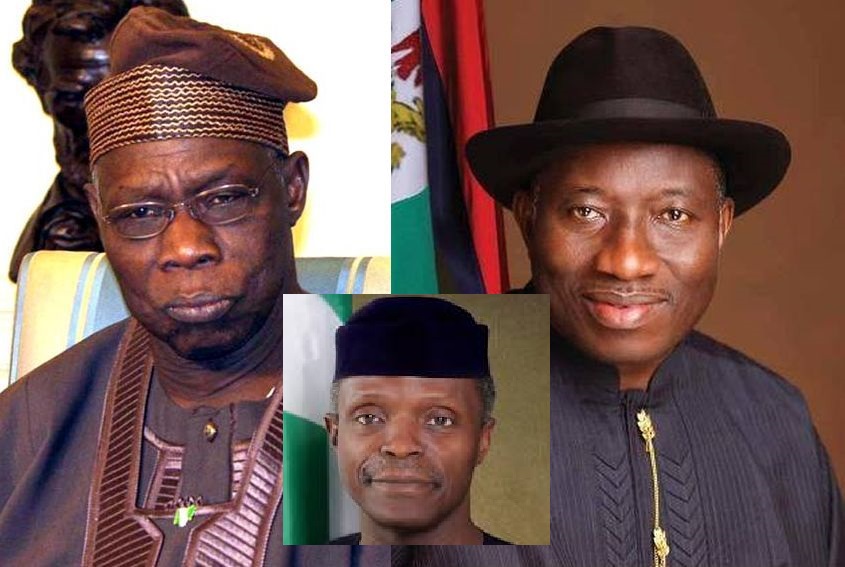
Nigerian Christians wear a frown as they play the victim—when their faith asks them to smile and turn the other cheek
By Olusegun Elijah
Beside football, nothing else makes Nigeria as touchy-feely as religion does. Leaders—and indeed diehards—of the two major religions in Africa’s biggest population could kill for two pins.
In the run-up to the 2014 national confab former President Goodluck Jonathan put together, secretaries (very brainy ones at that) of the Christian Association of Nigeria and JNI, which Sultan Abubakar Sa’ad lll heads, had a spar. The bone of contention was a dumb figure. And the JNI scribe drew the first blood. “Christians, who by all acceptable records are not more than 40 per cent of the country’s population ironically constitute 62 per cent of the total delegates,” Dr. Khalid Abubakar said, protesting the demographics of the delegate.
His CAN’s counterpart then went for it full throttle. “The JNI secretary-general goofed,” said Dr. Musa Asake, “having put out insensible arguments and thoughts.” He then challenged Khalid to “make public the source of his population figures which shows that Christians in this country are 40 percent.”
Khalid probably plucked the figure from the thin air. Or he just dusted off some very old number, and pressed it home. A 2010 Pew research put the population figure at 48.3 percent and 48.9 percent for Nigeria’s Christians and Muslims respectively. But the 0.6 percent difference means all the world to the Christians who believe the odds are always stacked against them in Nigeria. Sure, that tiff could have soured the N7-billion junket Jonathan organised to restructure Nigeria then.
Asake’s CAN is still fuming three years after—but over something else this time: basic education religion curriculum. And the rage is no less fierce. The Christian body is angry the government of Pastor and Acting President Yemi Osinbajo is watching a Jihadist agenda take hold in basic education.
Aso Rock, CAN’s leadership believed, was too blind to see what was happening in the world’s most dangerous place to be a Christian, according to U.S. Congressman Christopher Smith in February. And they had to strike while the iron was hot. “We are here to point your attention to a time-bomb, obnoxious, divisive and ungodly secondary school curriculum that the Federal Ministry of Education is introducing into our schools…,” CAN’s President Samson Ayokunle told the acting president during a meeting in June.
That eye-opener wasn’t just damning enough.

A committee of some old jackboots—Retired Generals Theophilus Danjuma, Joshua Dogonyaro, Zamani Lekwot and some politicians like Chukwuemeka Ezeife branded Nigeria Christian Elders Forum—also hit at the presidency. Their finding: an Islamization agenda pushed, on one front, by Fulani herdsmen, and aimed at weakening Nigeria’s constitution and democracy on the other. To them, the conspiracy is already cut and dry. “Jihadists have taken over the education and security apparatuses of the nation to foist Islamic rule,” they said.
But trust the other party. They didn’t allow the godsquad to get away with that offensive. The Christian war vets took some flak from Prof Ishaq Akintola, the executive director of the Muslim Rights Concern. “MURIC charges the Nigeria military to caution its retired Christian generals….They must desist from brandishing their expired medals in our faces,” he said in a lengthy press statement. Last week “Using CRK and IRS in the current school curriculum as a launch pad [for an anti-Islamic war] stands logic on its head.”
For the new Basic Education Curriculum problem, again, if you are in a hurry, blame Jonathan, the second Christian (Anglican) president Nigeria—a country ever haunted by a bogey of an Islamic agenda—had in 10 years. Critics say he had a lot of baggage as a politician. Well… his CV as a Bible-basher can be very impressive to his admirers. Besides his Judaeo-Christian name and church affiliation, Jonathan is a JP, his wife an awardee of the University of Yoido Full Gospel Church, the world’s largest single congregation based in South Korea; his spiritual father was CAN’s former President Ayo Oritsejafor; and his counsellors, according to a book by Segun Adeniyi, were RCCG Pastor E.O Adeboye and the Winner Chapel founder, Bishop David Oyedepo. A pious churchman, Jonathan has it on record that he donated a multi-billion-naira church building to his home town Otuoke. He was actually gifted the cathedral by a construction company after he left office in 2015. What more, Jonathan, for the five years he spent at Aso Rock, fasted during every Ramadan and Lent.
No point arguing that Nigeria’s immediate past president is a hard-core religious—a Christian at that. And CAN knows it, too—that such a Christ-loving president wouldn’t have foisted Islamic religion study on Christian schoolkids across Nigeria, as the CRK crusaders say now.
All those involved in the policymaking have defended Jonathan. They said it all started with the late President Umar Yar Adua whose V.P. was Jonathan. Christian and Muslim leaders asked him to make Islamic and Christian Religious Knowledge core and compulsory subjects in schools. “When Goodluck Jonathan took over, we presented a paper making the same demand, which was approved,” said Sultan,“ but the then minister of education refused to implement it for reasons best known to him.”
Then Gov. Bukola Saraki was aware, too. And now as Senate president, he doesn’t see it as Jonathan’s government pushing an agenda then. And not Buhari’s either. “I am sure that there was no intention to make one group feel disadvantaged with this new school curriculum,” he told a CAN delegation that sought his audience few days ago.
The UBC might have been a great idea to lighten the burden of academic work crushing primary school pupils in Nigeria then. As a policy, however, it seems a non-starter. That was why it just exploded in the face of the government.
ALSO SEE: Christians, Muslims cannot work together, says Shekau
Even then, the guys taking the fall now—President Muhammadu Buhari and Osinbajo—aren’t without their defence. And they are getting sympathies. Buhari’s supporters believe if the Boko Haram terrorists being pounded now had been Christians, the president would have been roundly accused of war crime in the course of Islamizing Nigeria. Buhari is sparing no expense in dealing hard with the Islamists.
During a Global Coalition Working to Defeat ISIS’ summit in Washington in March, Nigeria’s defence chief revealed how much the counterinsurgency—a talking point for critics—has cost the administration. Gen. Abayomi Olonisakin said the C-in-C has spent over $2.6 billion deploying men and materiel to stabilize the northeast where the extremists seek to establish an Islamic caliphate.
But all that explanation looks like pissing in the wind. Christian leaders and conspiracy theorists still allege a plot. And they are not keeping quiet.
The whining recently annoyed Abuja Catholic Diocese Bishop Cardinal John Onaiyekan. The Vatican rep had to challenge his Christian colleagues to stop grumping. “Let nobody deceive you,” he said during a mass in Abuja early July. “I don’t think there is anybody who has plan to Islamize Nigeria.”
And in case there is such a plan on the card, Cardinal Onaiyekan said it is within their rights—just as it is the Christians’ who busy organizing pity parties all around. “The answer is not in complaining and crying,” he added, charging them to “stand up like a man and Christianize Nigeria”.
The Christians wouldn’t say they have not sat in power pretty well enough to do what Onaiyekan said—policy-wise, though. Jonathan could have done it. Former President Olusegun Obasanjo and his co-travellers then, including Elder Danjuma, could have pulled it off —at least twice—in 1979 and between 1999 and 2007. Had that been accomplished, there would have been no reason for the NCEF crying wolf now, accusing a Muslim President Buhari colluding with Islamists.
Obasanjo, in particular, had all he needed, many say, to change Nigeria, including Christianizing it, if political power was the means—or making the nation as secular as the constitution says. He was a president, military and civilian. He was a Christian during these periods, and he still is—a vibrant Matthew and National Open University certified Ph. D. theologian.
As an elected president for eight years, he had four Senate presidents who are Christians. If it were that important, Christianizing Nigeria—or breaking up any Jihadist agenda, if there was one—should have topped their laundry list as a government.
Well, there were actually some plots—conspiracy theories at best—before the Fulani Jihad NCEF just unveiled. Some truthers said the Gideon Orkah coup in 1990 was meant to head off the Islamic agenda by ex-President Ibrahim B. Babangida. Orkah never mentioned this in his April 22, 1990 speech, though.
A couple of scholars had some brainwaves about it, too. In an appeal to Obasanjo on March 7, 2001, the late Professor Omo Omoruyi revealed Babangida truly had such plan up his sleeves, and that it even predated the general. As Houston University’s African Studies Centre research fellow, Omoruyi drilled the Islamization conspiracies from the late Murtala Mohamed to ex-President Sheu Shagari through Gen. Buhari, down to Babangida, and the late President Sani Abacha.
Omoruyi made quite a reveal. In a long chain of intrigues, he pointed out as spadework the Sharia entrenchment in the constitution, Nigeria’s membership of the Organisation of Islamic Cooperation under Babangida in 1986, and the D8 membership, a bloc of eight Islamic countries to which Abacha shanghaied Nigeria in 1997.
The beat-back of the OIC membership was more interesting. CAN was borne out of that circumstance. Christian leaders then, under Cardinal Olubunmi Okogie, had insisted the OIC membership was a prank to make Nigeria an Islamic republic. Notwithstanding, Angola, Burkina Faso, Cameroon, Ivory Coast are also members—all benefiting from the economic cooperation OIC’s Islamic Development Bank offers. The Christian body was meant to block the move.
If the D8 and OIC cover stories, for instance, were plots worth foiling, Nigeria’s membership withdrawal would have been uppermost on Jonathan’s and Obasanjo’s agenda. The two Christian presidents could have pulled Nigeria out of the cooperation—or they could have added it to a Christian or Jewish international coalition as a counterbalance.
That never happened. Obasanjo attended a D8 summit in 2001. In the OIC Nigeria had 7.7 percent, Africa’s largest, of the holdings, as of 2012, under Jonathan. The Christian president also graced an OIC meeting in 2013.
To the Christian apologists, the two leaders failed—even with the full god slots they had—to either impose Christianity as a state religion, or reduce the decades-long stranglehold of Islam on Nigeria.
But all Obasanjo could do was build a chapel at Aso Rock. No biggie! The crusaders believe he should have done more.
So CAN should not expect the nine days’ presidency of Pastor Osinbajo to pull the trigger. The law professor doesn’t even believe anybody can do that. ” They must first change the constitution,” he told his audience during the 2015 campaign. It’s okay for as long as Nigeria’s president doesn’t sit in council with the OIC members. He hates it that Jonathan was the first president to attend the group’s summit. Other than that, all the uproar over Nigeria’s membership is unnecessary.
Perhaps it’s all a waffle—all the noise about an Islamic agenda. And that was why Obasanjo and Jonathan didn’t bother. Maybe, like Onaiyekan advised, the Christians should just be Christians: people whose lot here below is persecution and subjugation.
He described how the apostles went through horrible suffering. “And because of that, the Church took root when everybody thought it was the end of the story of Jesus.”
Onaiyekan has been sounding like a hard-ass papist, contrary to the expectation of many Christian leaders and activists that enjoy rabble-rousing. His blueprint for proselytizing actually cannot appeal to many evangelists living on easy street in Nigeria. “You don’t Christianize the nation by standing up and looking for prosperity or material benefits,” he said.
And, certainly, no one Islamizes over 80 million Christians by merely tweaking CRS and IRK in the school curriculum.
According to legal experts, it doesn’t work like that in a constitutional democracy.
You may like
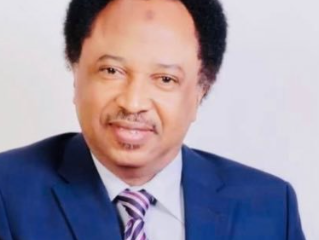

The poor should not bear the burden of sacrifice – Shehu Sani, others tell Tinubu
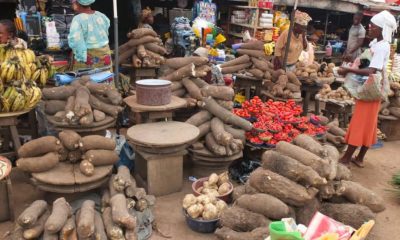

Easter: Osun Christians lament over economic challenges amid celebrations


Nigeria is at a crossroad – Bode George
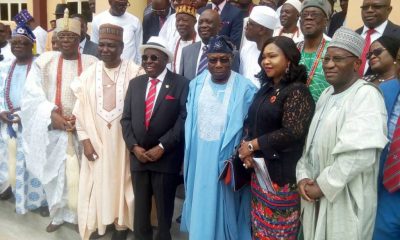

Obasanjo, Ooni, Anyaoku, Kukah, Falana honour Afe Babalola on 60th anniversary of call to Bar
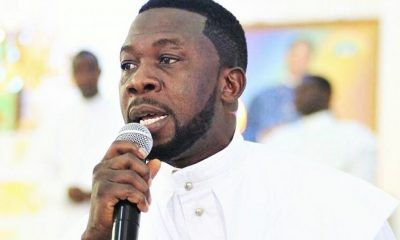

Muslim-Muslim Ticket: Lagos popular prophet counters CAN, PFN, rejects Christian candidates
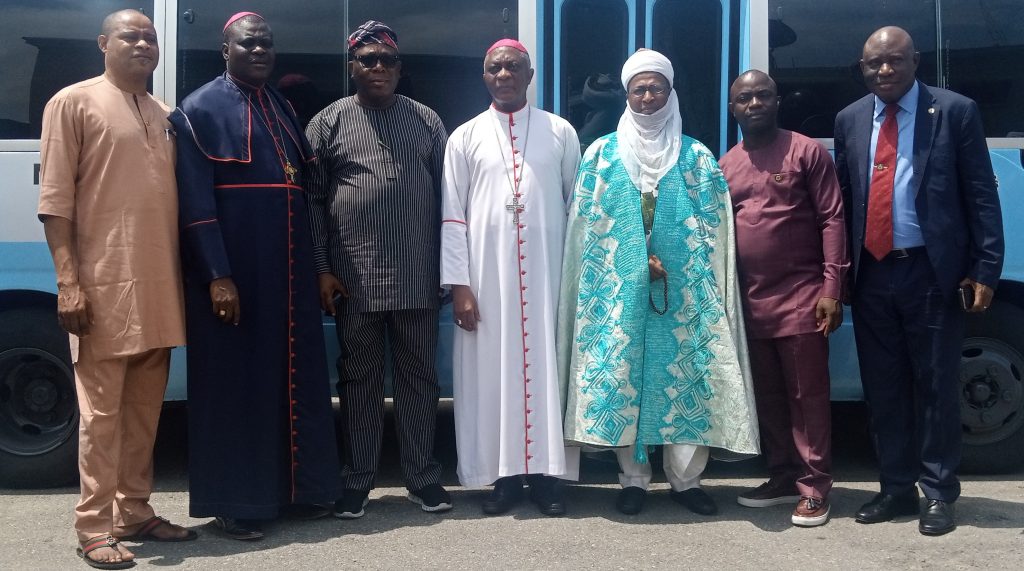

Lagos govt, Christians, Muslims seek improved security
Trending

 Health1 week ago
Health1 week agoDeclassified CIA memo explored concealing mind-control drugs in vaccines

 Crime1 week ago
Crime1 week agoSenior police officers faces retirement after Disu’s appointment as acting IGP

 Latest1 week ago
Latest1 week agoICPC yet to respond to El-Rufai’s bail request as arraignment date looms

 Latest6 days ago
Latest6 days agoFubara pledges collaboration with APC lawmakers after Rivers by-elections

 Health6 days ago
Health6 days agoGroups launch ‘COVID Justice’ campaign, urge U.S. Senate to adopt accountability resolution

 Business1 week ago
Business1 week agoNaira slips to N1,353.5/$ ahead of CBN’s 304th MPC decision

 Football1 week ago
Football1 week agoOsimhen returns to training ahead of Juventus clash, boosts Galatasaray’s Champions League hopes

 Football6 days ago
Football6 days agoJuventus prepare €120m bid for Osimhen as summer rebuild plans gather pace

